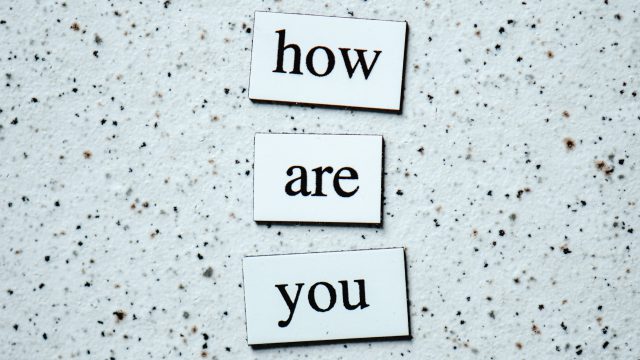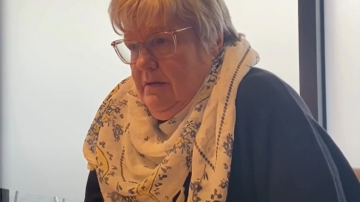People say it’s good to talk. Part of processing how we feel is often about speaking those hard to say words that have been locked up inside us. Talking can be profoundly healing, if we are heard with compassion and gentleness. That ‘if’ is an important one. Social media encourages us to say anything and everything to an unseen audience – and we may fear that everyone sees us negatively, or we may fear that no one sees us at all. If we are to do the deeply healing kind of talking then we need a safe space and safe people to listen to us, and we also need to be that kind of good listener for others.
It wasn’t always like this. My grandparents’ generation, even my parents’, left a lot unsaid. Those who fought in the world wars rarely spoke of their experiences. They held a stiff upper lip and kept carrying on. It’s easy to see fault in that approach, because often hurt people hurt people until they can attend to their own pain. However, the act of keeping going with steadfastness has its merits. Sometimes we need to fake it ’til we make it.
A lot of the time, though, we’re not operating at the level of healing words or valiant stoicism. We’re simply being asked how we are as a form of politeness, a part of saying hello. The anticipated answer is a brief affirmative, not a catalogue of woes. Again, it’s easy to be dismissive, but I’ve had friends who’ve never asked me how I am, and that can be disconcerting. This bland checking in with each other is a part of our social interaction.
So what about the middle ground, the friend or family member who’s beyond “y’alreet?’ but is probably not up for the bearing of a soul. They genuinely care how I am, yet I tell them I’m fine when I’m not. Why?
For me there are three main reasons. Firstly, I feel protective towards them. I don’t want to alarm or upset them, I want them to be ok and not be worrying about me. Part of this is pure selfishness – once they start worrying about me they will need me to look after them in their worry, to put hard to find energy into reassuring them, answering more calls or messages than usual so they can worry less. I feel like I’m letting them down when I’m still not better and they still have to worry.
Secondly, I have to manage my expectations. If I’m really honest about how I am, will my family member or friend respond in a supportive way, or will they feel overwhelmed and back off? Or will they simply be unable to meet me in my need? If I don’t say that I’m struggling, or ask for help, I can keep telling myself that if I did reach out to someone they would help me. Once I’ve reached out to people and they haven’t responded well, I can’t deny how alone I am. I’ve lost that illusion that if only I reached out for help I would find it. Often, saying I’m fine is actually about self-preservation.
Thirdly, I spend every moment of my life with myself, and the truth is that I get bored by myself. When I’m struggling I’m living with it hour after hour, day after day. I have no desire to repeat myself by telling this to someone whenever we talk. I don’t have mood swings; however I am, I stay like it for some time. Telling people I’m the same as I was when they asked last week is tedious and dispiriting. It reminds me that I still feel as bad as I did last time they asked. I want to hear something different – what’s lighting them up, or what they’ve been doing. I can rejoice with them when they rejoice even when inside I’m weeping for myself.
And actually, I guess there’s a fourth reason. I tell people I’m fine because I desperately wish it was true.



